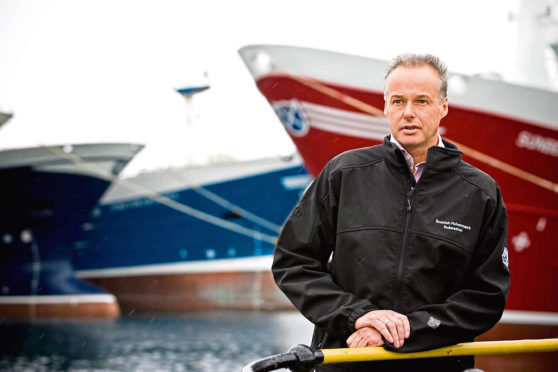Scottish fishers have been threatened with a massive cut in quota for their most valuable species, just as a new poll shows overwhelming public support for them catching more fish after Brexit.
The International Council for the Exploration of the Sea (Ices), an influential group of scientists whose advice helps to shape fisheries policy in the EU and elsewhere, has called for north-east Atlantic mackeral catches to be slashed by nearly 70%.
Mackeral was worth £162 million, or 29% of the total catch by value for the Scottish fleet last year.
According to Ices, “high fishing pressure” combined with low recruitments in 2015 and 2016 have resulted in spawning-stock biomass – the total weight of fish in a stock that are old enough to spawn – falling below desired levels.
Scottish Pelagic Fishermen’s Association chief executive Ian Gatt said yesterday the proposed cut was a “huge concern” and he would be meeting European Commission officials today to discuss it.
He is also meeting Scottish Fisheries Minister Fergus Ewing this week to “raise our considerable fears on the impact this will have on Scotland’s valuable mackerel sector”.
Mr Gatt added: “Because of doubts in the accuracy of the assessment, it is essential that the issue is examined in an open and transparent manner and that every effort is made to mitigate any proposed cuts, whilst at the same time ensuring the continuing sustainability of the fishery.
“The Ices perception of the stock is also contrary to that witnessed by fishermen on the fishing grounds.”
Ices has admitted its mackerel stock assessment is less than perfect because of its sensitivity to survey data sources that are relatively new and vary from year to year.
Meanwhile, a YouGov poll commissioned by the Scottish Fishermen’s Federation (SFF) has found 63.5% of UK voters favour a bigger catch for the domestic industry in British waters after Brexit.
Academics say about 60% of fish and shellfish, by weight, is caught in Britain’s exclusive economic zone – an area extending up to 200 nautical miles from the coast – by non-UK vessels.
SFF’s poll also showed voters rank fisheries as the UK economic sector most likely to benefit from Brexit, with 59% of those with a view saying it would.
Bertie Armstrong, the federation’s chief executive, said: “It has been evident to those within the industry in the UK for many years that the system is inequitable.
“We have some of the best fishing grounds in the world, yet the straitjacket that is the CFP (Common Fisheries Policy) prevents our boats from catching even a majority of the quota in our own waters.
“That must end with Brexit, and it is pleasing that the public recognise the validity of our arguments about grasping the sea of opportunity to ensure that fishing is one of the biggest beneficiaries of Brexit across the UK economy.
“They understand the need for a fairer share of quotas allocated on the basis of sound science to maintain our number one goal of sustainability.”
